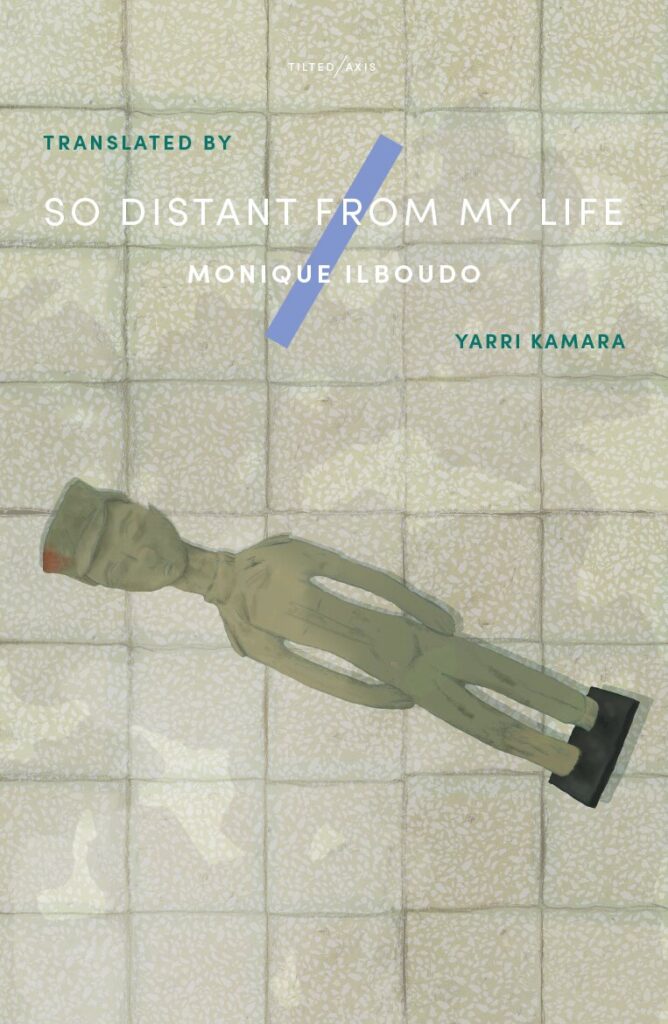About
Author: Monique Ilboudo (Burkina Faso)
Genre: Social
Setting
Place: Sahel, France
Time: 1980s-2010s
My Rating (see what this means)
My Subjective Rating: 2
My ‘Objective’ Rating: 1.52
Introduction

‘So Distant from my Life’ by Monique Ilboudo is a simple quirky tale – about a wannabe economic migrant from the Sahel who would do anything to reach Europe.
Economic migration has been the top of agenda the politics of much of the western world as I was reading this book. If the book was an attempt to explore what drives the thirst for individuals to migrate to a richer country against any barbed wires put up in the way – it was not a very successful one. Jeanphi – the protagonist’s motivations, compulsions, struggles were simply not convincing to make for a compelling narrative.
The Story
At one level, I was afraid the book would simply be tragedy porn – focusing on the misery of widespread poverty in Burkina Faso, about the desperation of its people, or about the perilous journey through the Sahel and the Sahara to the Mediterranean sea on the way to supposed prosperity which swallows many. It starts as such – where Jean Phi the protagonists first loses his life savings to a scamster and then sets off on a blister-filled journey, makes it to Morrocco before he is packed off to home. Thankfully the book wasn’t just that.
It fairly quickly pivots to something entirely different – Jean Phi suddenly finds prosperity back home, thanks to a European benefactor. Life improves for a while until conditions are set to change again – and Jean Phi is left with a choice – choose to go back to a life of eventual poverty or embrace homosexuality without actually being gay. This would be momentous choice is papered over in just a few paragraphs in the book.
Instead, a couple long chapters gets dedicated to characters who would just be killed off/written off by the end of the chapter – with no super obvious reason to be in the story. There is a drama of his father dying out of shame of having a gay son – but it never really hits enough.
And suddenly another momentous decision beckons Jean Phi as he decides to break of his otherwise happy gay marriage – and for which he feels bad for about a sentence. Well not being gay – he might plausibly not feel much about it – but that itself could have been a theme the novel explores only in passing.
Suddenly back in Burkina Faso, runs a successful NGO there and then is suddenly killed off. It could plausibly be the case that sudden changes of circumstances are things that just happen in the Sahel. If that is the case – the book paints a sorry picture at best.
Masochism?
This made me wonder if I would have liked the book better if it had instead been tragedy porn. I certainly felt other West African novels with grimmer themes that I read – say – the journey of a child soldier, the tribulations of a woman navigating rape and wars under a dictator, were better books. Would I have found more sympathy for Jeanphi had his life been layered with a few more tragedies? Or do people who are not entirely miserable not deserve a better life? Off course that’s not the case. This is simply not a very well written book
Picture Credits:
- Cover Picture: https://www.independent.co.uk/voices/it-makes-no-sense-to-separate-refugees-from-economic-migrants-a6685911.html